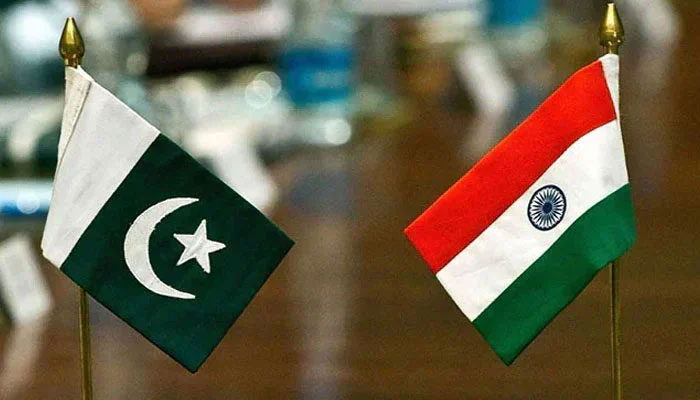Let’s not waste the moment
When political competition descends into personal vendettas and tit-for-tat attacks, it paralyses governance
Pakistan has averted the worst. The country has successfully navigated a dangerous standoff with India through strategic diplomacy and military preparedness, avoiding a full-scale conflict. This was no small feat. At a time when the Indian establishment fanned the flames of nationalism and warmongering, Pakistan showed restraint, maturity and unity. The political leadership rose above petty rivalries, offering a rare glimpse of what a cohesive national front can achieve. Now, with the immediate threat behind us, it is time to channel that same maturity and unity toward our internal challenges, which have long weakened the foundations of our democracy. Chief among these is our broken political culture. The past two general elections were marred by serious allegations of rigging and manipulation and the public’s trust in the electoral process has eroded. A system in which losing parties believe their mandate was stolen cannot be called a functioning democracy. Therefore, our political leadership must create a framework for credible, transparent and inclusive elections in the next electoral cycle. The goal should not just be to win at any cost but to ensure that the process itself is beyond reproach, and that all parties – winners and losers – can accept the outcome.
Politics will always involve rivalry and ideological conflict. That is natural and even healthy. But when political competition descends into personal vendettas and tit-for-tat attacks, it paralyses governance and damages institutions. Worse, it opens the door for extra-constitutional actors to step in. Pakistan cannot afford another round of destabilisation. The country has only just begun to recover from the brink – politically, economically and diplomatically. We have avoided default, stabilised the economy, and are even in talks for a promising trade deal with the US. These gains must not be squandered on political short-sightedness. Equally urgent is the need for a united front against terrorism. The recent military setback for India may push it to destabilise Pakistan through proxies like the BLA and TTP. These groups thrive in moments of political disarray and regional alienation. The state must be prepared – not just with force, but also with inclusive policies which are long overdue. Balochistan and Khyber Pakhtunkhwa have borne the brunt of terrorism and underdevelopment. Their people must feel heard, valued and protected. We should not have to write this, but here we go again: no ethnicity or province should feel like an afterthought in the federation.
This inclusivity must also extend to religious minorities. The state’s failure to protect minorities such as the Ahmadi or Christian communities reflects a moral and constitutional failing. The state has shown, time and again, that when it has the will, it can take decisive action. That same resolve must now be directed towards eradicating hate speech, cracking down on extremist literature and holding perpetrators of religious violence accountable. Tolerance and pluralism are not just mere options in a modern, democratic society. We stand truly at a crossroads today: the unity displayed in the face of an external threat has shown what is possible when national interest takes precedence over personal agendas. It is now up to our political leadership to make sure it doesn’t waste this opportunity and extends this unity to rebuild our democratic processes, confront the menace of terrorism, protect the vulnerable and ensure that the mistakes of the past do not define the future.
-
 South Korea: Two Killed As Military Helicopter Crashes During Training
South Korea: Two Killed As Military Helicopter Crashes During Training -
 Elon Musk Unveils SpaceX’s Moon-first Strategy With ‘self Growing Lunar City’
Elon Musk Unveils SpaceX’s Moon-first Strategy With ‘self Growing Lunar City’ -
 Donald Trump Slams Bad Bunny's Super Bowl Performance: 'Absolutely Terrible'
Donald Trump Slams Bad Bunny's Super Bowl Performance: 'Absolutely Terrible' -
 Jake Paul Criticizes Bad Bunny's Super Bowl LX Halftime Show: 'Fake American'
Jake Paul Criticizes Bad Bunny's Super Bowl LX Halftime Show: 'Fake American' -
 Prince William Wants Uncle Andrew In Front Of Police: What To Expect Of Future King
Prince William Wants Uncle Andrew In Front Of Police: What To Expect Of Future King -
 Antioxidants Found To Be Protective Agents Against Cognitive Decline
Antioxidants Found To Be Protective Agents Against Cognitive Decline -
 Hong Kong Court Sentences Media Tycoon Jimmy Lai To 20-years: Full List Of Charges Explained
Hong Kong Court Sentences Media Tycoon Jimmy Lai To 20-years: Full List Of Charges Explained -
 Coffee Reduces Cancer Risk, Research Suggests
Coffee Reduces Cancer Risk, Research Suggests -
 Katie Price Defends Marriage To Lee Andrews After Receiving Multiple Warnings
Katie Price Defends Marriage To Lee Andrews After Receiving Multiple Warnings -
 Seahawks Super Bowl Victory Parade 2026: Schedule, Route & Seattle Celebration Plans
Seahawks Super Bowl Victory Parade 2026: Schedule, Route & Seattle Celebration Plans -
 Keto Diet Emerges As Key To Alzheimer's Cure
Keto Diet Emerges As Key To Alzheimer's Cure -
 Chris Brown Reacts To Bad Bunny's Super Bowl LX Halftime Performance
Chris Brown Reacts To Bad Bunny's Super Bowl LX Halftime Performance -
 Trump Passes Verdict On Bad Bunny’s Super Bowl Halftime Show
Trump Passes Verdict On Bad Bunny’s Super Bowl Halftime Show -
 Super Bowl 2026 Live: Seahawks Defeat Patriots 29-13 To Win Super Bowl LX
Super Bowl 2026 Live: Seahawks Defeat Patriots 29-13 To Win Super Bowl LX -
 Kim Kardashian And Lewis Hamilton Make First Public Appearance As A Couple At Super Bowl 2026
Kim Kardashian And Lewis Hamilton Make First Public Appearance As A Couple At Super Bowl 2026 -
 Romeo And Cruz Beckham Subtly Roast Brooklyn With New Family Tattoos
Romeo And Cruz Beckham Subtly Roast Brooklyn With New Family Tattoos




